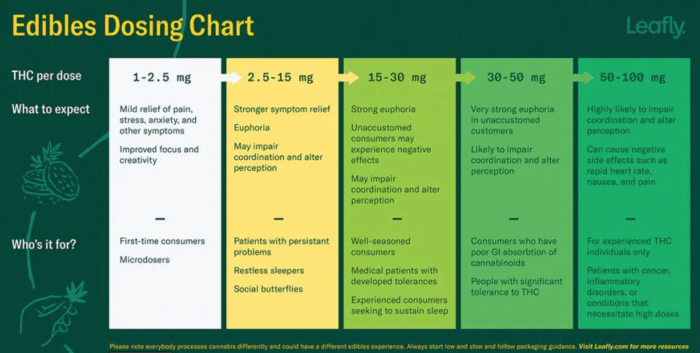Which of the following is true about cannabis everfi? This question opens up a vast and ever-evolving field of study, encompassing the effects of cannabis on the brain, mental health, physical health, society, education, and the future. In this article, we delve into the intricacies of cannabis, unraveling its complexities and shedding light on its multifaceted nature.
From the short-term and long-term impacts of cannabis on brain function to its potential benefits and risks in managing mental health conditions, we explore the intricate relationship between cannabis and the human mind. We delve into the physical effects of cannabis, examining its influence on respiratory, cardiovascular, and immune function, and its role in pain management and symptom relief.
Cannabis Effects on the Brain

Cannabis has significant effects on brain function, both in the short and long term. Short-term effects include altered perception, impaired memory, and reduced attention span. Long-term effects can include changes in brain structure and function, as well as an increased risk of mental health disorders.
Cognitive Abilities
Cannabis use can impair cognitive abilities such as memory, attention, and executive function. Studies have shown that cannabis use can lead to reduced memory recall, difficulty focusing, and impaired decision-making. These effects can be particularly pronounced in adolescents, whose brains are still developing.
Brain Structure and Function
Long-term cannabis use can lead to changes in brain structure and function. Studies have shown that chronic cannabis users have reduced volume in the hippocampus, a brain region involved in memory and learning. Cannabis use has also been linked to altered connectivity between brain regions, which can affect cognitive function.
Cannabis and Mental Health
Cannabis use has been linked to both positive and negative effects on mental health. Some studies have shown that cannabis can help to reduce symptoms of anxiety and depression. However, other studies have found that cannabis use can increase the risk of developing mental health disorders, such as psychosis.
Potential Benefits
Cannabis has been shown to have potential benefits for mental health, including reducing symptoms of anxiety, depression, and chronic pain. It may also help to improve sleep and reduce inflammation.
Potential Risks
Cannabis use can also have negative effects on mental health, including increasing the risk of developing psychosis, schizophrenia, and other mental health disorders. It can also worsen symptoms of anxiety and depression in some people.
Cannabis and Physical Health: Which Of The Following Is True About Cannabis Everfi
Cannabis has a range of effects on physical health, both positive and negative. Some studies have shown that cannabis can help to improve respiratory function, reduce inflammation, and relieve pain. However, other studies have found that cannabis use can increase the risk of cardiovascular disease, cancer, and other health problems.
Respiratory Function
Cannabis use can improve respiratory function in some people. It can help to relax the airways and reduce inflammation, which can make breathing easier.
Cardiovascular Disease
Cannabis use has been linked to an increased risk of cardiovascular disease, including heart attack and stroke. This is because cannabis can increase blood pressure and heart rate.
Cancer
Some studies have shown that cannabis use can increase the risk of certain types of cancer, such as lung cancer and testicular cancer. However, other studies have found that cannabis use may actually reduce the risk of some types of cancer, such as prostate cancer.
Cannabis and Society

Cannabis is a controversial drug that has been used for centuries. Its use is legal in some countries and illegal in others. The legal status of cannabis varies from country to country, and it is important to be aware of the laws in your area before using cannabis.
Legal Status
The legal status of cannabis varies from country to country. In some countries, cannabis is legal for recreational use, while in others it is only legal for medical use. In some countries, cannabis is illegal for all purposes.
Social and Cultural Factors
The social and cultural factors that influence attitudes towards cannabis use vary from country to country. In some cultures, cannabis use is seen as a positive thing, while in others it is seen as a negative thing.
Economic and Social Implications
The legalization of cannabis has a number of potential economic and social implications. These include increased tax revenue, reduced crime rates, and improved public health.
Cannabis and Education

Cannabis use is a common problem among young people. It is important to educate young people about the risks and benefits of cannabis use so that they can make informed decisions about whether or not to use it.
Resources and Programs
There are a number of resources and programs available to help educate young people about cannabis use. These include school-based programs, community-based programs, and online resources.
Evidence-Based Information
It is important to provide young people with evidence-based information about cannabis use. This information should include the risks and benefits of cannabis use, as well as the laws governing cannabis use.
Age-Appropriate Messaging
It is important to use age-appropriate messaging when educating young people about cannabis use. The message should be tailored to the specific needs of the audience.
Cannabis and the Future

Cannabis is a rapidly evolving field. There are a number of new scientific advancements and ongoing research in the field of cannabis. These advancements are likely to lead to new medical uses for cannabis, as well as new ways to use cannabis for recreational purposes.
Scientific Advancements
There are a number of new scientific advancements in the field of cannabis. These advancements include the development of new cannabis strains, new methods of cannabis delivery, and new ways to study the effects of cannabis on the brain and body.
Ongoing Research, Which of the following is true about cannabis everfi
There is a great deal of ongoing research in the field of cannabis. This research is focused on understanding the effects of cannabis on the brain and body, as well as developing new medical uses for cannabis.
Potential Future Applications
Cannabis has a number of potential future applications. These applications include the use of cannabis for pain management, anxiety relief, and depression treatment. Cannabis may also have potential applications in the treatment of cancer, Alzheimer’s disease, and other serious illnesses.
Answers to Common Questions
What are the short-term effects of cannabis on the brain?
Short-term effects include altered perception, impaired memory, and reduced attention span.
Can cannabis use lead to mental health disorders?
While cannabis use may trigger or worsen certain mental health conditions, it can also alleviate symptoms in some cases.
What are the potential benefits of cannabis for physical health?
Cannabis has shown promise in managing pain, reducing inflammation, and improving sleep.